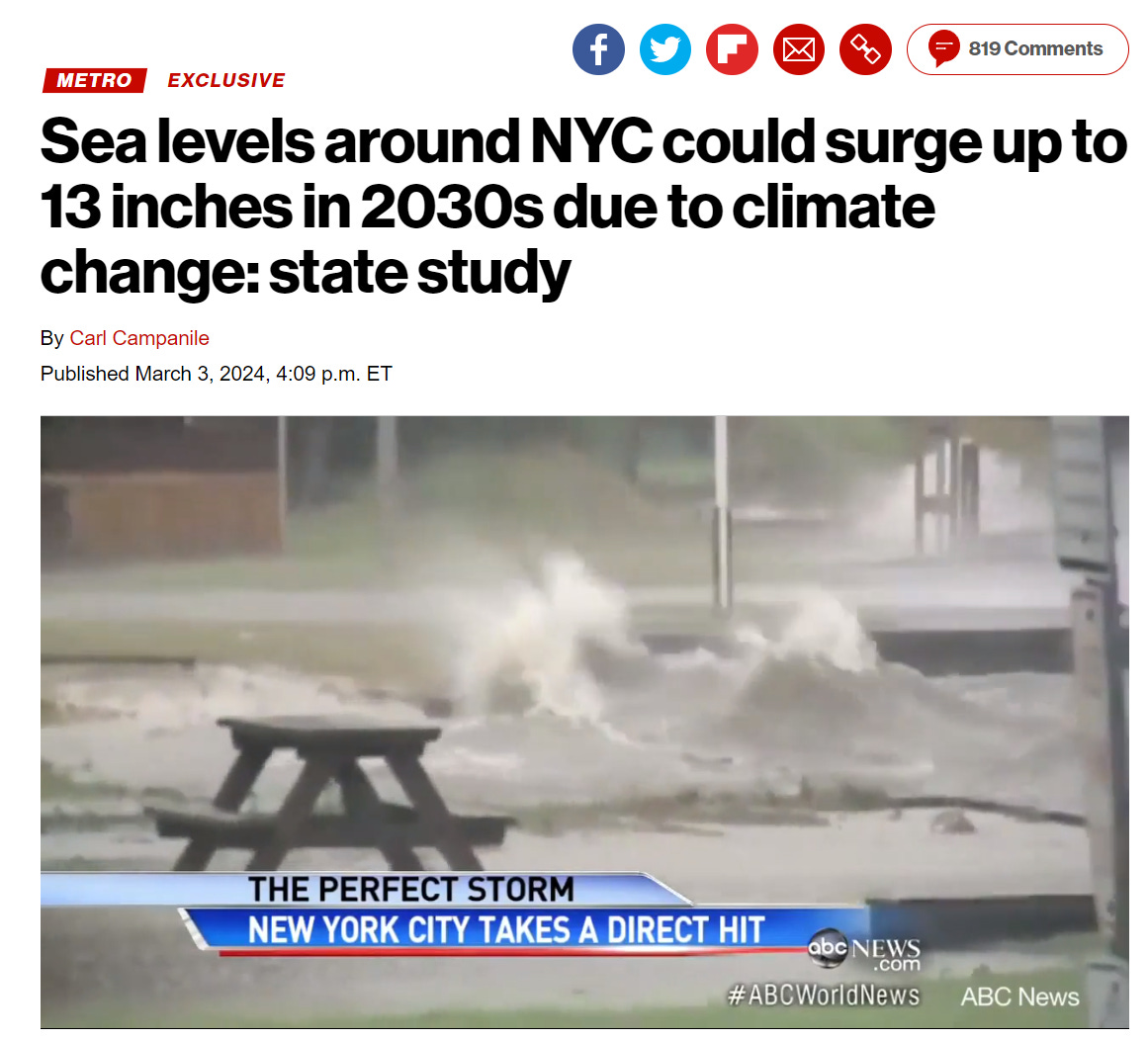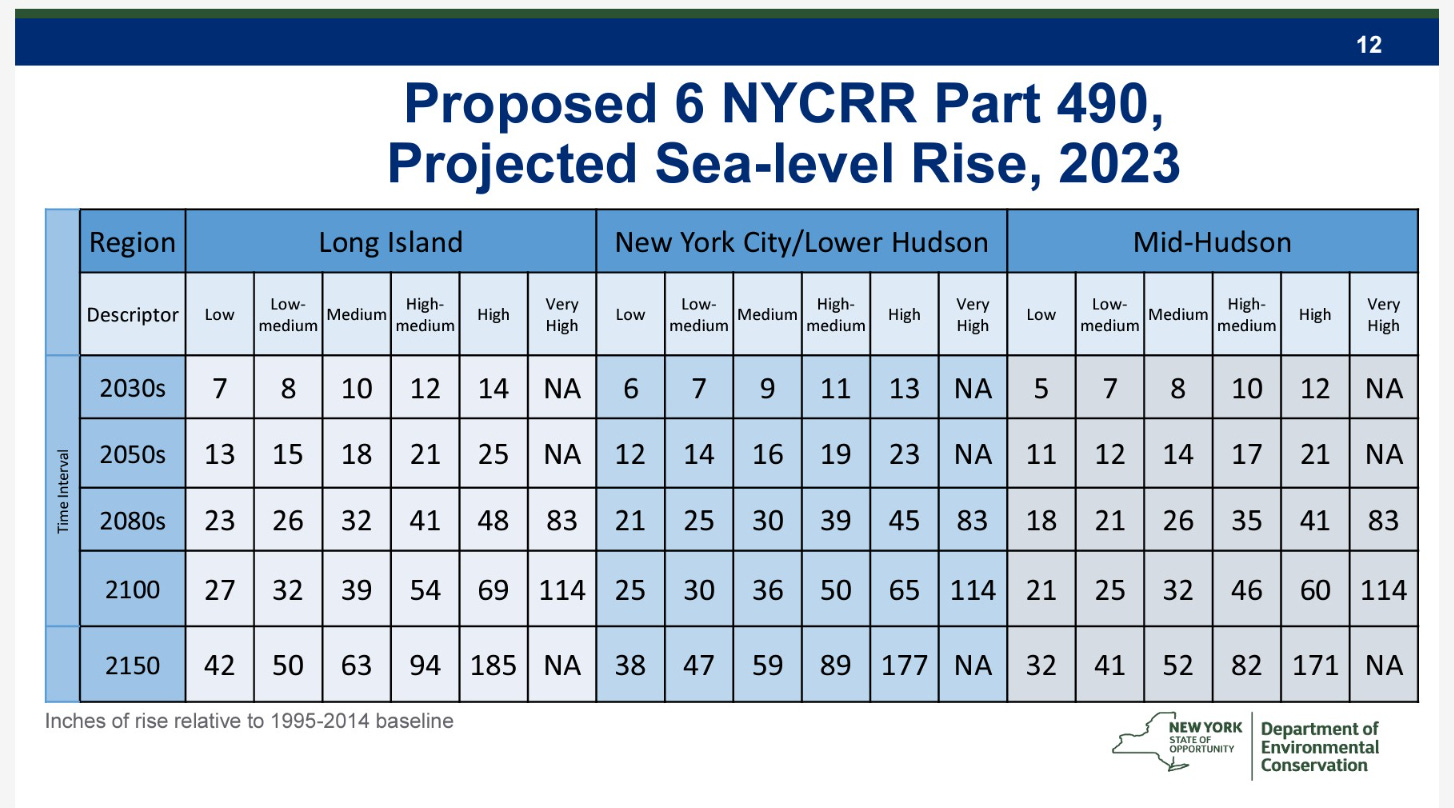The Media's Climate Change Sensationalism
Why You Shouldn't Get Your Climate Change Information from the MSM
Mainstream media (MSM) plays a crucial role in disseminating scientific findings to the public. However, the necessity to engage an audience can often lead to sensationalized headlines. These headlines, while effective at capturing attention and generating revenue, often reduce nuanced scientific predictions to overly simplistic statements. The headline suggesting a dramatic surge in sea levels around New York City is a case in point. It condenses a complex study into a single, alarming prediction.

The New York Post article claims that sea levels in New York City could rise up to 13 inches by the 2030s due to climate change, citing a state study. However, a closer examination of the study reveals that this prediction is based on a worst-case scenario, which assumes that global greenhouse gas emissions will continue to increase at a high rate and that no action will be taken to curb emissions.

The Intergovernmental Panel on Climate Change (IPCC) has acknowledged that high emissions scenarios such as RCP8.5 are considered to have a very low likelihood. This scenario, which predicts significant increases in CO2 emissions and assumes a large-scale increase in coal use, has been subject to criticism due to its assumptions regarding future coal use, which would require a significant expansion contrary to current trends in the energy sector.
What does the data say?
Keep reading with a 7-day free trial
Subscribe to Irrational Fear to keep reading this post and get 7 days of free access to the full post archives.



